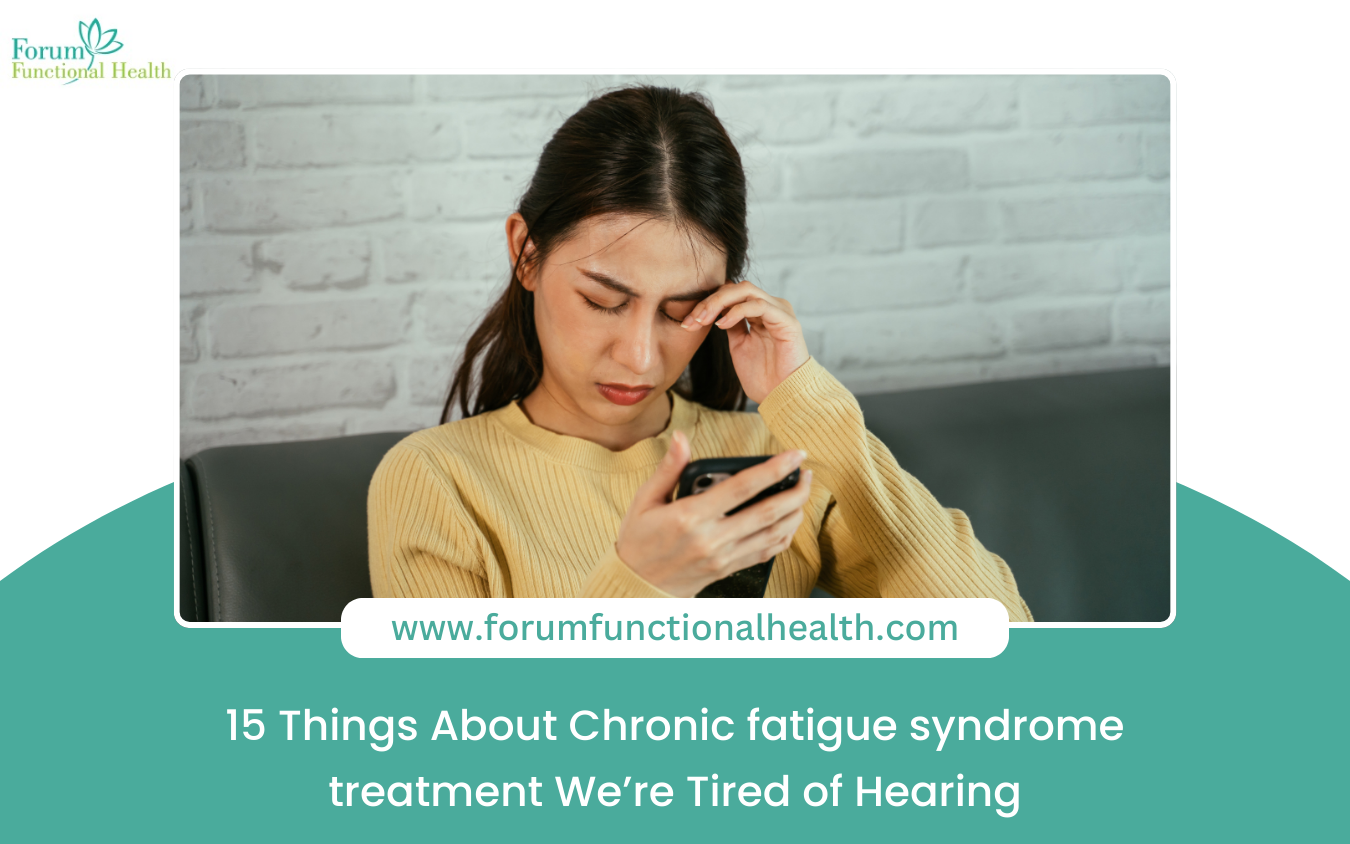15 Things About Chronic fatigue syndrome treatment We\’re Tired of Hearing

Chronic Fatigue Syndrome (CFS), also known as Myalgic Encephalomyelitis (ME), is a complex and debilitating condition characterized by extreme fatigue, cognitive dysfunction, and post-exertional malaise (PEM). Despite ongoing research, misinformation about chronic fatigue syndrome treatment persists, leaving patients frustrated and often dismissed.
If you’ve heard “just exercise more” or “it’s all in your head” one too many times, this article is for you. Here are 15 things about CFS treatment we’re tired of hearing—along with evidence-based alternatives.
1. “Just Push Through It”
The Myth: Fatigue can be overcome with sheer willpower.
The Reality: PEM (Post-Exertional Malaise) means physical or mental exertion worsens symptoms. Pacing and rest are critical—not pushing through.
🔹 What Helps: Graded Exercise Therapy (GET) is controversial; many patients report harm. Activity pacing (staying within energy limits) is safer.
2. “You Just Need More Sleep”
The Myth: CFS is simple exhaustion fixed by extra rest.
The Reality: Many with CFS experience unrefreshing sleep, insomnia, or disrupted circadian rhythms.
🔹 What Helps: Sleep hygiene improvements (consistent schedule, dark room) + medications like low-dose naltrexone (LDN) for some patients.
3. “It’s Just Depression”
The Myth: CFS is a mental health issue, not a physical one.
The Reality: While depression can coexist, CFS involves immune dysfunction, mitochondrial issues, and neurological abnormalities.
🔹 What Helps: Antidepressants may help some but aren’t a cure. Anti-inflammatory diets and vagus nerve stimulation show promise.
4. “Exercise Will Cure You”
The Myth: GET (Graded Exercise Therapy) is the gold standard.
The Reality: Many patients crash after exercise. The PACE trial (GET’s basis) has been widely criticized for flawed methodology.
🔹 What Helps: Gentle movement (yoga, stretching) within energy limits. Heart rate monitoring to avoid overexertion.
5. “Try This Miracle Supplement”
The Myth: A single pill (B12, magnesium, etc.) will fix CFS.
The Reality: While some supplements help symptoms, there’s no universal cure.
🔹 What Helps: Personalized approaches—CoQ10, D-ribose, NAD+ may aid energy metabolism. Testing for deficiencies (iron, vitamin D) is key.
6. “You’re Just Lazy”
The Myth: CFS patients aren’t trying hard enough.
The Reality: CFS is a recognized neurological disease (WHO ICD-11). Many patients were high achievers before getting sick.
🔹 What Helps: Validating the illness + disability accommodations (flexible work, mobility aids).
7. “It’s All in Your Head”
The Myth: CFS is psychosomatic.
The Reality: Research shows immune dysfunction, viral triggers (EBV, COVID), and brain inflammation in CFS.
🔹 What Helps: Biomarker research (like microclots in Long COVID) is paving the way for better diagnostics.
8. “You’ll Grow Out of It”
The Myth: CFS only affects teens or young adults.
The Reality: It can strike any age, and many suffer for decades without recovery.
🔹 What Helps: Early intervention (rest, pacing) may improve long-term outcomes.
9. “Just Do Yoga/Meditation”
The Myth: Stress management alone can cure CFS.
The Reality: While mindfulness helps symptom management, it doesn’t address root causes.
🔹 What Helps: Combining stress reduction with medical treatment (e.g., antivirals for EBV-triggered CFS).
10. “There’s No Treatment, So Just Accept It”
The Myth: Nothing can be done.
The Reality: While no cure exists, treatments like LDA (Low-Dose Abilify), IV fluids, or immunomodulators help some patients.
🔹 What Helps: Finding a CFS-literate doctor (check ME/CFS org directories).
11. “You’re Just Getting Older”
The Myth: Fatigue is normal aging.
The Reality: CFS is disabling—far beyond typical age-related tiredness.
🔹 What Helps: Ruling out other conditions (thyroid issues, sleep apnea) first.
12. “It’s Your Diet”
The Myth: Just go keto/vegan/gluten-free.
The Reality: Some patients improve with dietary changes, but no one-size-fits-all solution exists.
🔹 What Helps: Elimination diets to identify triggers (histamine, gluten).
13. “You’re Not Sick, You’re Just Stressed”
The Myth: Burnout = CFS.
The Reality: CFS involves measurable biological abnormalities (e.g., NK cell dysfunction).
🔹 What Helps: Cortisol testing + adrenal support if needed.
14. “Doctors Know Best”
The Myth: All physicians understand CFS.
The Reality: Many doctors still dismiss or misdiagnose CFS.
🔹 What Helps: Self-advocacy + seeking specialists (e.g., ME/CFS clinics).
15. “You’re Making It Worse by Focusing on It”
The Myth: Ignoring symptoms helps.
The Reality: Proper symptom tracking leads to better management.
🔹 What Helps: Pacing apps (Visible, Bearable) to monitor energy expenditure.
Conclusion
Living with CFS is hard enough without enduring outdated, dismissive, or harmful advice. While research is evolving, current best practices focus on pacing, symptom management, and personalized care—not pushing through or waiting for a miracle cure.
